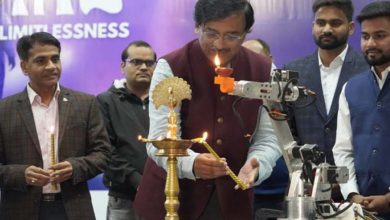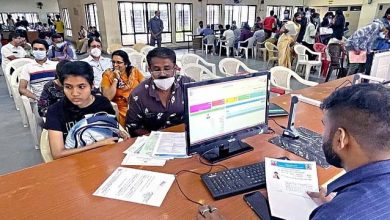Karnataka: ‘Chauri’ fishing with plastic bottles is polluting the sea

Karwar: Shed fishing, a method in which tonnes of plastic bottles are thrown into the sea to create an artificial reef to catch calamares, was banned by the state government in 2012. The Central Fisheries Marine Testing Institute later banned it. However, this method has been in practice for the last eight years.
Experts say fishing troughs not only pollute the ocean with dry plastic bottles, but also have a cascading effect on the ecology. These artificial reefs cause the squid population to multiply, affecting other marine species.
Fisheries Department officials expressed their inability to stop it due to lack of human resources. He says that there is pressure from local politicians also not to take action against those violators.
Between September and October, expert fishermen from Tamil Nadu hire boats with local registration numbers to catch calamares, using lights in the ceiling to attract calamares to the shadowed area beneath the boat. Light fishing also goes against established norms.
The fisheries department had earlier caught some violators but they were let off after charging a nominal fine of Rs 5,000. “We know that fishermen from Tamil Nadu are involved in this illegal fishing,” said Bibin Boppan, assistant director of the Karwar Fisheries Department.
“We cannot stop it as we take care of the personnel to conduct the raids and confiscate the caught squid. Even if we arrest them, we get calls from leaders of different parties to release them”, he said.
A local fisherman, who could not be identified, confirmed that the practice is widespread. “What these fishermen are doing is illegal on many levels. After harvesting, the artificial plastic “reef” falls into the ocean.
To avoid detection, fishing and installation of artificial reefs in calamar is done at night.
“Ante, the visiting fishermen used casuarina trees to create artificial reefs in the sea. However, when forest officials took steps against the destruction of this tree, fishermen started using plastic”, said Professor Shivakumar Haragi, Department of Marine Biology, Karnataka University, Karwar. These rocks are the cause of creation of disasters throughout the year. These calamare eat small fish which affects the fish population.
Locals say that the fishing community visiting the communities buys tons of plastic bottles from local straw traders. An artificial aqueduct filled with plastic bottles requires two bags of sand to clear approximately 600 empty bottles (one quintal weight) per aqueduct. These bottles float at between 15 to 20 knots in the Arabian Sea to act as breeding grounds for calamares. Fishermen sell the calamares after collection in November and keep them behind artificial reefs in their waters for up to a year. During the season approximately 150 guest fishermen are dedicated to Chauri fishing.
Vitthal K H, a fisherman from Karwar who lends his boats to fishermen from Tamil Nadu, said that, like fishermen from Andhra Pradesh, Goa, Maharashtra and Gujarat, fishermen from Tamil Nadu also come here to work as labourers. Are. Boats. “They are not involved in any kind of irregularity.”
Betrick, a fisherman from Nagapattinam, Tennessee, said he was not aware of any irregularities in the use of artificial reefs to catch squid. “I am a member of a nomadic community. When fishing goes down off the Tennessee coast, we turn to other places to fish,” he said.





